|
| |
This week in: Peace & Security Publications |
IPSI | Africa | Americas | East Asia | Middle East | South Asia
|
|
|
|
| |
This week in Peace & Security Publications
|
|
|
|
| |
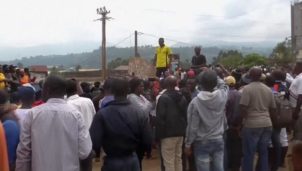
International Crisis Group: The Anglophones of Cameroon, 20 per cent of the population, feel marginalised. Their frustrations surfaced dramatically at the end of 2016 when a series of sectoral grievances morphed into political demands, leading to strikes and riots. The movement grew to the point where…
|
|
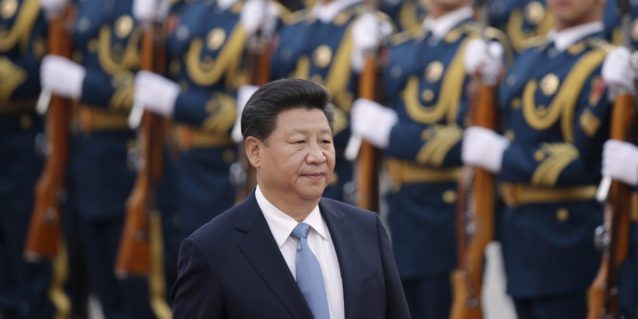
CSIS: As China’s top leaders flee the oppressive summer heat of Beijing in favor of a few weeks of policy meetings and vacation at the leadership’s seaside retreat at Beidaihe, the break provides a welcome opportunity to reflect upon the direction of Chinese elite politics as President and Chinese Communist Party (CCP) General Secretary Xi Jinping approaches…
|
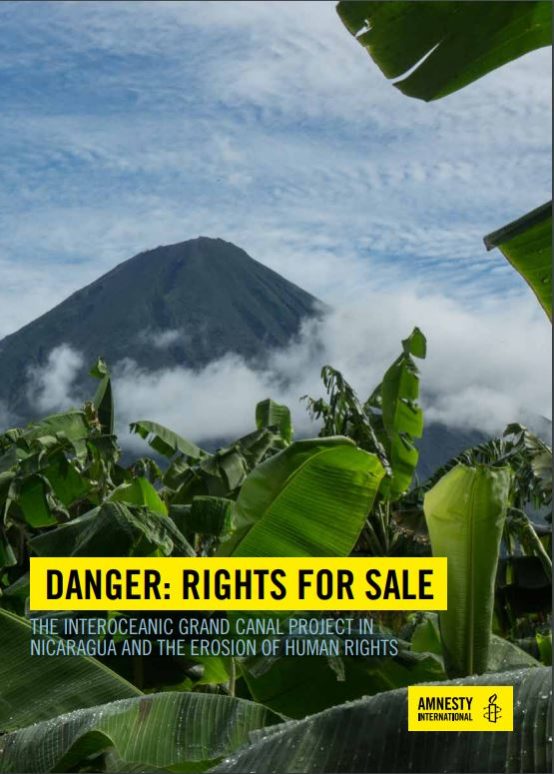
Amnesty International: The history of Nicaragua will remember 13 June 2013 as a momentous date. On that day, the National Assembly adopted the “Special Law for the Development of Nicaraguan Infrastructure and Transport in respect of the Canal, Free Trade Zones and Associated Infrastructure” (Law 840). This Act gave the go-ahead for…
|
|
|
|
|
|
| |
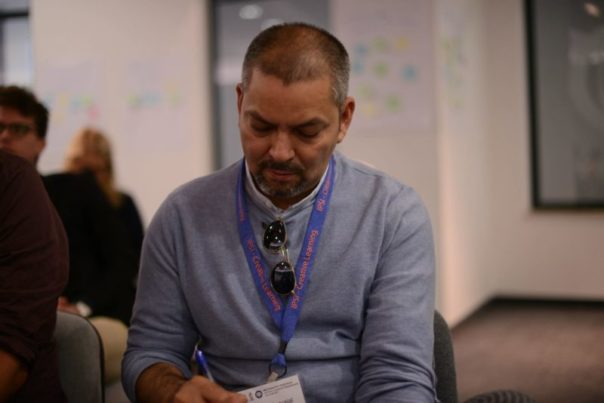
BLOG: Reimagining Bosnia and Herzegovina
The experience of taking part in the inaugural Sarajevo Symposium on Post-Conflict Transitions has left me with numerous lessons. Firstly, receiving daily stories of the local people and other participants in this event has shown me that, despite ethnic and cultural differences, individuals are still committed towards creating peace. Participants have expressed this through…
|
|

OPINION: In Venezuela, it’s time to save lives
Board member Johanna Mendelson Forman decries “Defying the calls from other governments and international groups to annul the election results, the Maduro government made clear its intentions to effectively end any semblance of a democratic state.”
|
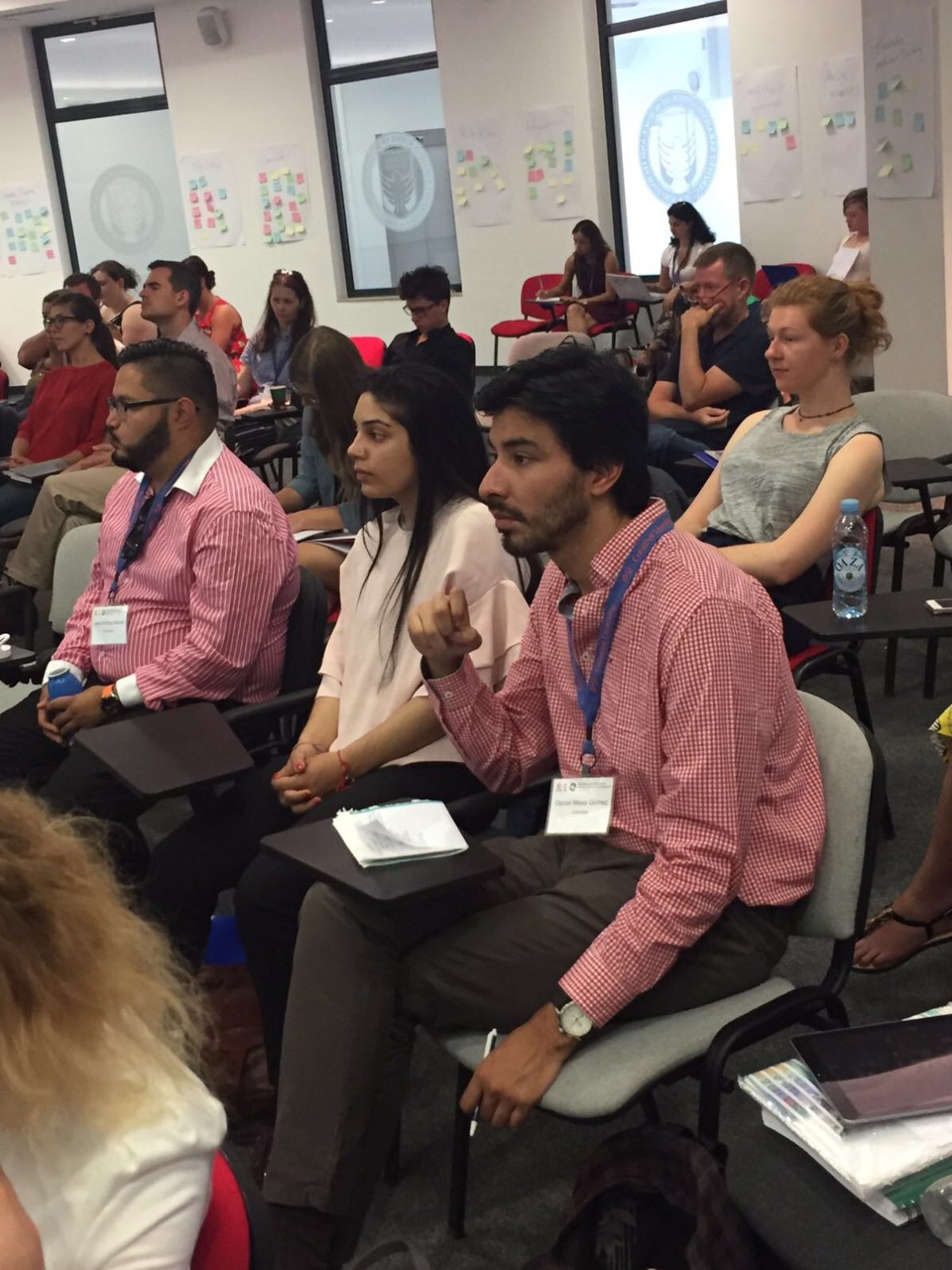
BLOG: Frameworks for Accomplishment of Peace Processes
Conflicts all around the world are composed of complex contexts and different actors. Solutions to such conflicts also need to be complex—involving series of negotiations and multiple implementation stages—and ideally lead to outcomes including…
|
|
|
|
|
|
| |
This week in Sub-Saharan Africa
|
|
|
|
| |
KENYA: Unrest after election
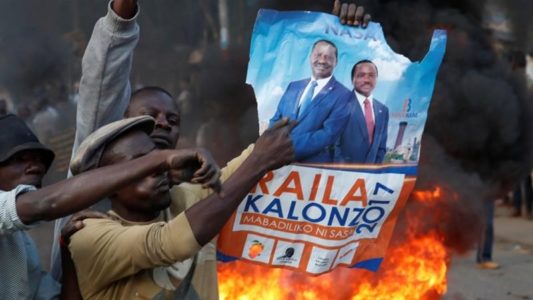
|
|
On Wednesday, at least five were killed in protests after the opposition claimed the poll system used for national elections was hacked. Two looters were shot during protests in Nairobi. Another was shot by police in Kisii County, west of Nairobi. The circumstances are unclear. In the Tana River region, five men with knives attacked a tallying station resulting in one civilian casualty. Police killed two of the attackers while the other three escaped. In Kibera, Nairobi’s biggest slum, businesses remained closed or partially open since the election. In the Mathare slum, protesters blocked streets; some robbed pedestrians and threw stones at journalists. The streets were closed for two hours until police arrived. Comment: Opposition leader and former Prime Minister, Raila Odinga, rejected Tuesday’s poll result claiming his party’s count of the votes differs from those published on the election commission website. The election commission denies the claim. Kenya has a history of election violence. The last two elections in 2007 and 2013, were also contested. (StandardMedia, Reuters, AlJazeera)
|
|
|
|
|
| |
SOUTH AFRICA: Calls for parliament to be dissolved after Zuma survives sixth vote of no-confidence
On Wednesday, the Democratic Alliance (DA) called for parliament to be dissolved in order to call for an early election; general elections are currently scheduled for 2019. A secret vote of no confidence against President Jacob Zuma on Tuesday failed with 198 against and 177 in support of the motion. With such a close vote, the DA suggests holding early elections is the only way to assess the public’s perception towards Zuma. Comment: This is the sixth vote of no-confidence that Zuma has faced since his first election in 2009. He has been accused of corruption and mismanaging the economy. (IOL, TheSouthAfrican, Reuters)
|
|
|
|
| |
RWANDA: Rwanda says President Kagame won election with 98.8 percent of votes
| |
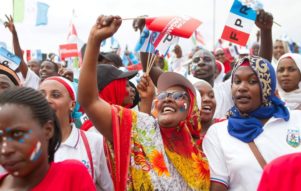
|
On Wednesday, Rwanda’s electoral body reported that President Paul Kagame won the presidential election with 98.8 percent of the votes; this will be Kagame’s third seven-year term. The two losing candidates in Friday’s election secured less than one percent of the votes each. While the elections were peaceful, the U.S. State Department spokesperson, Heather Nauert, condemned “the lack of transparency in determining the eligibility of prospective candidates.” Diane Rwigara was disqualified from running in the elections due to allegations of using dead voters’ signatures to support her nomination. Thomas Nahimana, a politician who expressed interest in the presidential candidacy but who resides in France, was barred by authorities from entering Rwanda. Comment: Kagame has been in power for the past 17 years. A change in Rwanda’s constitution in 2015 made it possible for him to run for another term. Rights advocates see this as a threat to democracy. Others claim the vote is a testament to people’s support of Kagame for bringing stability to the country after the genocide in 1994. (RwandaNews, Reuters, NYTimes)
Researched/Written by Angelica Aimé Silfa
|
|
|
|
|
| |
This week in the Americas & Caribbean
|
|
|
|
| |
CANADA: Recent increase in asylum seekers
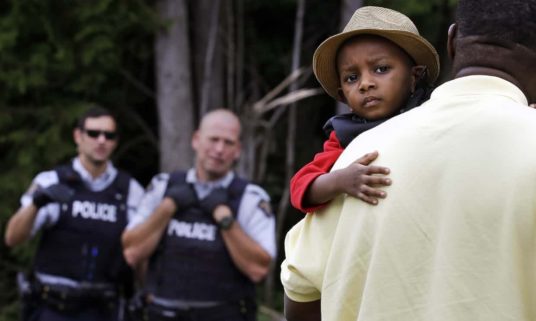
|
|
On Wednesday, the Canadian Armed Forces deployed 100 soldiers to help build a 500-person camp near Saint-Bernard-de-Lacolle to cope with the growing number of asylum seekers crossing the border from the U.S. About 700 asylum seekers arrived at the site, which has become a popular crossing point in in recent months. Most of the military personnel will not participate in security matters, but will return to their bases once the camp is built. Comment: According to the Canadian government, more than 4,000 persons have entered Canada during the first six months of this year, 3,300 of which concentrate in Quebec. Most of those crossing in recent days are of Haitian descent. In May, the Trump administration announced that it would not extend the temporary protection status for Haitians beyond its expiration date in January. The measure was established by the Obama administration after the 2010 earthquake, but the Department of National Security considers Haiti as a safe country. As many as 58,000 Haitians fear deportation. Canadian authorities have responded by opening additional welcome centers, including in Montreal’s Olympic Stadium last week. (CTV News, Prensa Libre, The Guardian, Government of Canada )
|
|
|
|
|
| |
COLOMBIA: UN mission ambushed; Police officer injured
On Sunday, a team from the UN Mission in Colombia was ambushed by unknown assailants in Caloto, in the southwestern department of Cauca, while working to uncover arms and explosives left by the Revolutionary Armed Forces of Colombia (FARC-EP). One member of the Peacebuilding Unit of the Colombian National Police (UNIPEP) was injured. National police blamed the National Liberation Army (ELN), which denied responsibility for the attack. Comment: FARC officially surrendered their weapons to the UN mission on June 27, beginning a disarmament process which is planned to end on September 1. Dialogues between the Colombian government and the ELN began in February in Quito, which led to a ceasefire on June 25. (El Tiempo 1, 2, TeleSur, UN Official News, Garda World 1, 2)
|
|
|
|
|
| |
VENEZUELA: Anti-government fighters attack military base and steal arms
On Sunday, a group of 20 anti-government fighters attacked the Paramacay military barracks in the city of Valencia, in central Venezuela, infiltrating its arms cache and stealing weapons. The military suppressed the attack, which resulted in seven captured, two killed, one injured, and ten escapees. Those captured are expected to be tried in military tribunals. Protests took place around Valencia on Sunday afternoon, while Maduro supporters marched in Caracas, calling for an end to violence. On Monday, a group going by the name of “The Binary Guardians” hacked close to 40 state-held portals, including those of the Venezuelan government, the National Electoral Council and the Navy, posting messages of support for the attack. Comment: Among several videos published on social media, members from the 41st Brigada Blindada in Valencia declared themselves a legitimate rebel group. On Sunday, President Nicolás Maduro announced the creation of a “truth commission,” adding that the new assembly is considering a law against “hate, intolerance and fascism” that would “try and immediately punish those found liable for the nation’s recent upheaval.” Since the constituent assembly was elected, two opposition leaders were arrested and the country’s chief prosecutor, Luisa Ortega Luis, was replaced. Venezuela’s opposition-controlled legislature refuses to recognize the constituent assembly’s legitimacy. (El Pais, The New York Times, The Associated Press 1, 2, 3, Reuters)
Researched/Written by Nastasia Stipo
|
|
|
|
|
| |
This week in East Asia & Pacific
|
|
|
|
| |
JAPAN: Nagasaki and Hiroshima remember 72nd anniversary of atomic attacks with calls to join UN Nuclear Ban Treaty
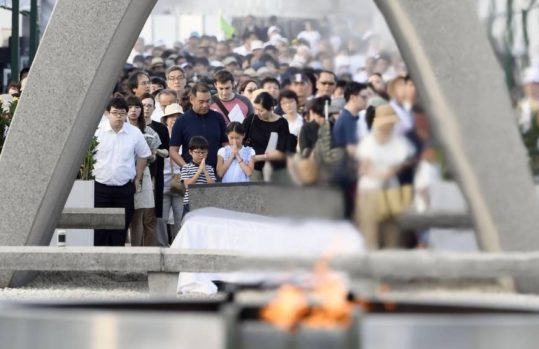
|
|
On Sunday and Wednesday, the Japanese cities of Hiroshima and Nagasaki, along with representatives from 60 to 80 nations, commemorated the 72nd anniversary of the use of atomic bombs by the United States. Mayor Matsui of Hiroshima and Mayor Taue of Nagasaki encouraged the Japanese government during the ceremonies to join 122 nations in signing the recently ratified UN Nuclear Prohibition treaty. President Abe, present at both ceremonies, while never specifically referencing the treaty in his addresses, said that a world without nuclear weapons required cooperation on the part of both non-nuclear and nuclear states. Comment: On August 6 and August 9, 1945, the U.S. dropped atomic bombs on Hiroshima and Nagasaki, respectively, resulting in the deaths of an estimated 140,000 in Hiroshima and 74, 000 in Nagasaki. Despite being the only nation ever to suffer an atomic attack, the Japanese government along with other nuclear powers refused to sign the UN’s Treaty on the Prohibition of Nuclear Weapons this past July. (Japan Today, Channel News Asia, Japan Times)
|
|
|
|
|
| |
NORTH KOREA: UN Security Council passes “most stringent” sanctions against North Korea
On Saturday, the 15 member UN Security Council unanimously voted to impose what the US calls its “most stringent” sanctions to-date against North Korea. The newest set of sanctions cuts imports of North Korea’s coal, iron, lead and seafood trade by USD one billion per year, bans the “the opening of new joint ventures or cooperative entities with” North Korea, and limits the number of expatriate North Koreans in each country to its current numbers. In response, Pyongyang threatened retaliation, announcing through the state media its plans to target Guam, a strategic U.S. military base. Comment: The latest set of sanctions, aimed at preventing North Korea from raising money for its weapons program, are the third set of sanctions in the past 18 months and the eighth set since 2006 when North Korea tested its first nuclear weapon. (Bloomberg, CNN, NY Times, Channel News Asia)
|
|
|
|
|
| |
REGIONAL: ASEAN and China adopt South China Sea framework for Code of Conduct
On Sunday, foreign ministers from Southeast Asia and China met and endorsed a framework for a code of conduct that will formalize a set of proper practices and responsibilities of national actors within the South China Sea. The U.S., Australian, and Japanese foreign ministers have all encouraged China and ASEAN states to make the code of conduct “legally binding, meaningful, effective, and consistent with international law.” Comment: China, Malaysia, the Philippines, Taiwan, Brunei, and Vietnam have all exercised claim over fishing rights and extraction of natural resources from the South China Sea. The framework for the code of conduct is a follow-up of the 2002 Declaration of Conduct (DOC) of Parties in the South China Sea, which has been largely ignored by claimant states. (CNN, South China Morning Post, Reuters, CNBC)
Researched/Written by Laura Bisbee
|
|
|
|
|
| |
This week in Europe & Central Asia
|
|
|
|
| |
FRANCE: Suspect deliberately rams car into soldiers in Paris, injuring six
On Wednesday, police shot and detained a suspect who deliberately rammed his car into a group of French soldiers, injuring six. Immediately after driving a BMW into a group of soldiers in the Parisian suburb of Levallois-Perret, the suspect led authorities on a five-hour manhunt before being apprehended. Officials are investigating the incident as an act of terror, and looking into motives of the suspect, a 37-year old Algerian national. In addition to the suspect being shot and detained, a police officer was also wounded after being struck by a stray bullet. Comment: Wednesday’s attack was the fifteenth attack on French troops and police since the beginning of 2015. This attack also occurred within one week of a teenager trying to assault security forces at the Eiffel Tower. France’s security level remains on maximum alert. (France24, Al Jazeera, Reuters)
|
|
|
|
|
| |
RUSSIA: Deportation of gay Uzbek journalist delayed
| |

|
On Tuesday, The Moscow City Court ruled that an Uzbek journalist for the investigative Novaya Gazeta newspaper would not be deported to Uzbekistan, but would continue to be held at a special detention center in Moscow. According to human rights defenders, the reporter, who is gay and writes under the pseudonym Ali Feruz, faces almost certain imprisonment in Uzbekistan, where homosexuality is a punishable crime. Feruz had been trying to receive asylum in Russia for more than two years when Russian police detained him on August 1 for potentially violating migration laws. The European Court of Human Rights is set to rule on Feruz’s appeal. Comment: On Wednesday, the U.S. State Department welcomed Russia’s decision to delay deportation, and Germany made a humanitarian offer to provide Feruz with assistance in leaving Russia and a paid position at the University of Göttingen. Amnesty International has pointed out that a decision from the European Court of Human Rights could take months or years, and that any detainment or torture of Feruz by Russian authorities is unlawful. (Moscow Times, AKI Press, Washington Blade 1, 2, Amnesty)
|
|
|
|
|
| |
TAJIKISTAN/IRAN: Tajik documentary alleges Iran’s involvement in high profile killings
On Tuesday, a TV-documentary airing in Tajikistan showed the Tajik Interior Minister claiming that Iran had a large role in the 1992-1997 Tajik civil war. The claims include allegations that Iran provided financial assistance to the Islamic Renaissance Party of Tajikistan (IRPT) and even trained IRPT militants on Iranian soil to carry out a string of high profile assassinations of Tajik public figures. On Thursday, Iran dismissed the documentary and claimed all allegations–including confessions from three Tajik criminals linking themselves to Iran– were unfounded. Comment: Despite years of diplomatic and economic ties between the two countries, Tajik political analyst Shokirjon Hakimov traces tensions back to 2013, with the arrest of a well-known Iranian billionaire. These tensions were further exacerbated in 2015, when a leader of the banned IRPT openly attended a conference in Tehran. Tuesday’s documentary is the first time Iran has been openly accused of direct involvement in Tajikistan’s civil war and the following political assassinations. (Asia Plus, RFE/RL 1, 2, Reuters)
Researched/Written by Natalie A. Landau
|
|
|
|
|
| |
This week in the Middle East & North Africa
|
|
|
|
| |
IRAN: Rouhani appoints two female vice-presidents and one assistant
On Wednesday, Iran’s President Hassan Rouhani appointed two women as vice-presidents and one as a civil rights assistant. He did not, however, make any changes to the Iranian all-male list of cabinet ministers, which was criticized by reformists for its lack of female representation. Masumeh Ebtekar was named vice-president for family and women’s affairs, Laya Joneydi is vice-president for legal affairs, and Shahindokht Mowlaverdi is the president’s assistant for civil rights. Rouhani had mentioned the importance of women’s rights in the campaign speeches that led to his second term victory. Comment: Mahmoud Ahmadinejad, Rouhani’s predecessor, had a female minister in his cabinet, in spite of the opposition of some clerics. A vice president in Iran is anyone appointed by the president to lead an organization related to presidential affairs; there are 12 vice presidents in Iran. (PressTV, France 24, BBC, Reuters)
|
|
|
|
|
| |
MORROCCO: Authenticity and Modernity Party leader resigns
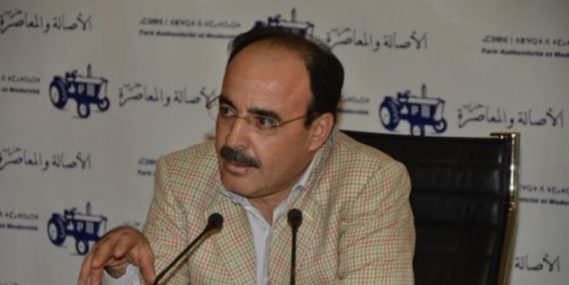
|
|
On Tuesday, Ilyas El Omari, Secretary General of Morocco’s Authenticity and Modernity Party (PAM), the main opposition party in parliament, announced his decision to resign from the party’s leadership. He presented his resignation amidst the backdrop of protests in northern Morocco, and only ten days after a critical speech by the Moroccan King Mohammed VI criticizing political parties and officials for failing to fulfil their duties in serving citizens. El Omari cited personal reasons for his departure and expressed his dissatisfaction with the performance of his party in governing offices and last year’s election defeat; however, he denied that his resignation had anything to do with the protests in northern Rif region, where he comes from. El Omari confirmed that he will remain, as always, an activist within the party and its bodies. Comment: The Rif region has been shaken by weeks of protests and violence this year. El Omari was elected PAM Secretary General in January 2016 and vowed to lead his party to win the parliamentary elections. In the polls, his party came second, behind the ruling Justice and Development Party (PJD). (Asharq Al-Awsat, The North Africa Post, Raialyoum)
|
|
|
|
|
| |
YEMEN: Teenage African migrants drowned by smuggler in Yemen
On Wednesday, a smuggler deliberately drowned at least 29 teenage migrants in Yemeni waters, according to the UN’s migration agency. They were among 120 people who were pushed from a boat into the sea by the smuggler. Representatives from the International Organization for Migration (IOM) found survivors on a Yemeni beach; 22 migrants are still missing. IOM added in a statement that the average age of the Somali and Ethiopian migrants on the boat was 16. War-torn Yemen is still seen by many Africans as a gateway to the rich Gulf states. The survivors told IOM that the smuggler pushed them into the sea when he saw ‘authority types’ near the coast. Comment: Of the 55,000 migrants that have left the Horn of Africa to come to Yemen so far this year, more than half of them are under the age of 18 and a third are thought to be female, according to IOM estimates. (CNN, BBC, Reuters)
Researched/Written by Atika Alkhallouf
|
|
|
|
|
| |
AFGHANISTAN: Taliban releases hostages after Sar-e-Pul attack
On Tuesday, the Taliban released 235 hostages taken in a siege on Sar-e-Pul on Saturday that left at least 50 civilians dead. There is uncertainty as to whether this was a joint attack between the Taliban and the self-proclaimed Islamic State; some villagers claim to have seen both flags and many fighters that appeared to be foreigners. The Taliban has denied any cooperation. President Ghani said in a statement “This barbaric act… is deemed a direct violation of human rights and a war crime.” Comment: The self-proclaimed Islamic State has not made any comment regarding the attack. If the two groups did cooperate, it would be the first time both militant groups joined in battle. The area of Sar-e-Pul is particularly vulnerable as both groups are present in the region. (Al Jazeera, BBC, Reuters 1, 2, AP)
|
|
|
|
|
| |
INDIA: Marathas protest demanding reserved quotas in government jobs and education
On Wednesday, over 800,000 Marathas marched in silent protest demanding reserved quotas in government jobs and education, higher prices for farm produce, and loan waivers for poor farmers to address rising unemployment rates and falling incomes. After the protesters refused to leave until their demands were filled, Chief Minister Devendra Fadnavis agreed to the demands; Marathas will now receive the same benefits as other economically challenged communities. Loan waivers have also been negotiated. Comment: This is the 58th silent protest by the Marathas held in the past year. Marathas are a powerful minority that constitutes 33 percent of Maharashtra’s population. (Mumbai Mirror, NDTV, AP)
|
|
|
|
|
| |
NEPAL: UNHRC urges Nepal to investigate an alleged gang-rape
| |
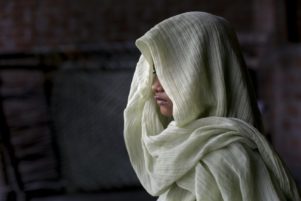
|
On Wednesday, the UNHRC called upon Nepal to look into the alleged gang-rape case by Nepalese soldiers of a young woman named Purna Maya during the civil war; the UN alleges she was subject to torture, arbitrary detention, inhumane treatment, and gender discrimination. They urged Nepal to punish those responsible and provide her with full reparation, including reimbursement for medical expenses. The director of Redress, an organization that seeks justice for torture survivors, said “Nepal’s failure to act on conflict-era sexual violence has contributed to the prevailing climate of impunity for perpetrators and the high levels of stigma and insecurity felt by victims.” Comment: Analysts report that the UNHCR decision is symbolic, and it is unlikely Nepal will act on the recommendations. Although there is little documentation of rape during the civil war, it is believed to have been widespread. (Redress, International Business Times, The Guardian)
Researched/Written by Rabia Uddin
|
|
|
|

|
|